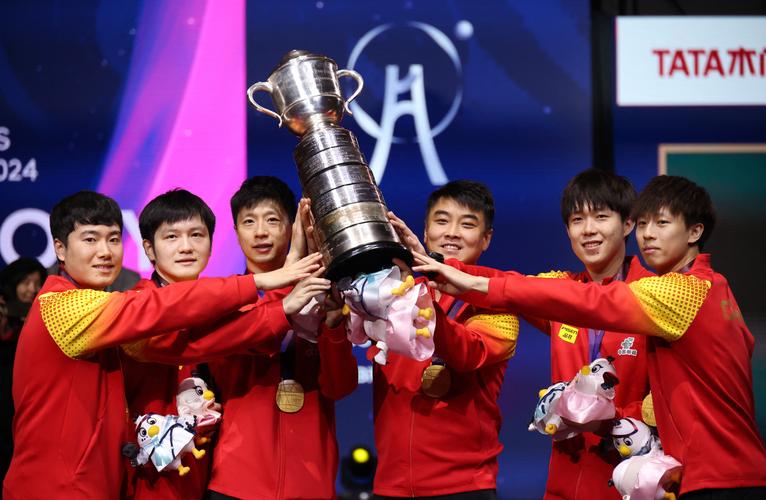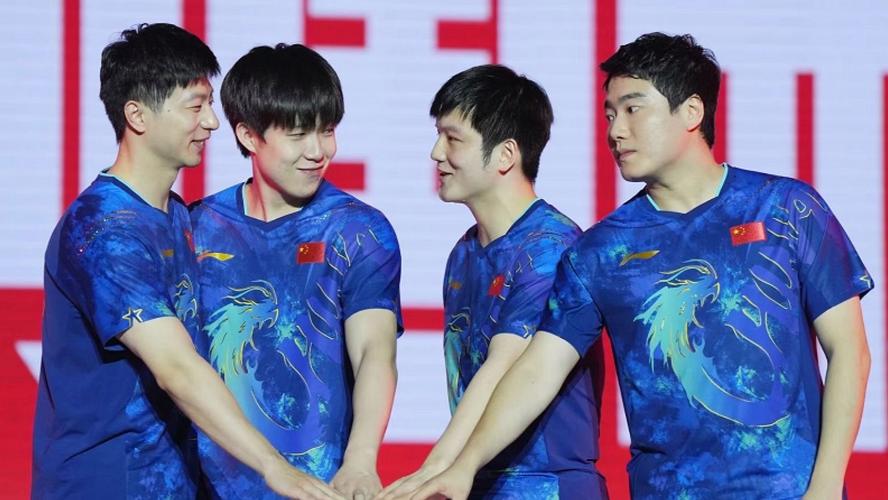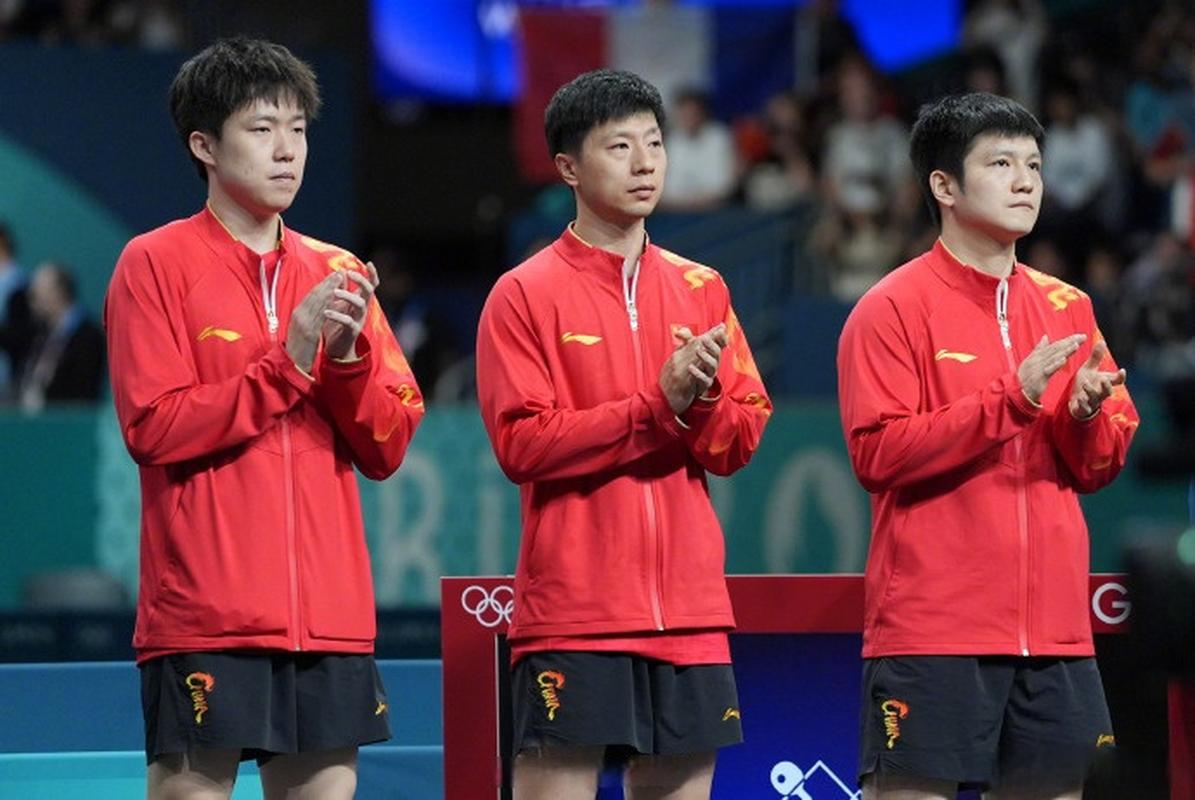In the global sport of table tennis, the Chinese national team is undoubtedly a legendary presence. From the days of "ping-pong diplomacy" to the recent Olympic gold medal grand slam, the Chinese team has won worldwide attention and respect with its remarkable skills, tenacious fighting spirit, and profound cultural heritage. However, following the successful conclusion of the Paris Olympics, the overwhelming dominance of the Chinese team seems to have once again become a focal point for the International Table Tennis Federation (ITTF). Recently, a series of new regulations introduced by the ITTF has sparked extensive discussion among fans, with many questioning whether the Chinese team is receiving "special attention."

Looking back at the Paris Olympics, the Chinese team was undoubtedly the brightest star. They won championships in all five events: men's singles, women's singles, men's team, women's team, and mixed doubles, demonstrating unparalleled dominance. Top players like Ma Long, Fan Zhendong, Chen Meng, and Sun Yingsha used their exquisite techniques and indomitable fighting spirit to write a new chapter of glory for the Chinese team. However, it is precisely this dominance that has made the Chinese team a "key focus" in the ITTF's rule adjustments.

In recent years, to balance the gap in table tennis standards between countries, the ITTF has frequently revised competition rules, from racket materials to game balls, and from ranking systems to entry qualifications, making significant adjustments. These changes have undoubtedly posed challenges to the Chinese team but also spurred them to develop stronger fighting spirit and adaptability. However, a new regulation recently introduced by the ITTF has left many fans feeling somewhat "excessive."

The new regulation mainly includes the following points: first, seeded players who withdraw without cause will face fines; second, athletes ranked in the top 100 in the world must announce their personal competition plans six months in advance, or they will face fines; third, qualifiers who pass through the qualifying rounds must participate in the main event, otherwise, they will also be fined; fourth, athletes who withdraw during the game must undergo medical examination to prove that it is not intentional, otherwise, they will also be fined; fifth, the same athlete may not participate in three or more grand slam qualifying events within a year, otherwise, they will also face fines.

These regulations seem to be aimed at standardizing athletes' participation behavior and enhancing the fairness and appeal of competitions. However, upon closer analysis, it is not difficult to find that some clauses appear to have a significant impact on the Chinese team. Taking Ma Long and Fan Zhendong as examples, these two leading figures of the Chinese team have indeed experienced several withdrawals in recent years due to age, injuries, and other reasons. According to the ITTF's new regulations, if they encounter similar situations again, they will have to pay high fines. This undoubtedly places economic pressure and psychological burden on the Chinese team.

In response, many fans have expressed doubts, believing that the ITTF's move seems biased and appears to be deliberately targeting the Chinese team. Some netizens pointed out: "The strength of the Chinese table tennis team is well-known, but the ITTF cannot introduce regulations unfavorable to the Chinese team just because of this! Is this going too far?" Another netizen said: "Ma Long and Fan Zhendong are veterans who have made huge contributions to Chinese table tennis. Their withdrawals due to injuries and other reasons are understandable. The ITTF should be more understanding and supportive of them instead of punishing them with fines."
Some fans believe that the ITTF's introduction of these regulations is not entirely aimed at the Chinese team but rather to standardize the participation behavior of the entire table tennis community and enhance the fairness and appeal of competitions. A fan said: "The ITTF's intentions are good; they hope to reduce withdrawal cases through these regulations and improve the integrity and appeal of competitions. This is beneficial to the development of the entire table tennis sport." Another fan said: "Although the Chinese team is strong, we cannot ignore players from other countries. The ITTF's regulations help narrow the gap between countries and make matches more intense and interesting."
The ITTF's introduction of these regulations does have its rationality and necessity. After all, table tennis is a global sport that requires the joint participation and promotion of athletes from various countries to continue to grow and prosper. However, in the process of rule-making, the ITTF should also consider the actual conditions and interests of athletes from different countries to avoid giving the impression of "targeting the Chinese team."
For the Chinese team, facing the new regulations from the ITTF, we need not worry or complain excessively. After all, strength is the hard truth. As long as we maintain our powerful strength and stable performance, no rules can hinder our progress. We should actively adapt to and respond to these new regulations, strengthen physical training and mental quality cultivation for athletes, and reduce withdrawals due to injuries and other reasons. Only then can we continue to write new glorious chapters for the Chinese team in future competitions.
In summary, although the new regulations introduced by the ITTF have aroused certain controversies and doubts, this is also a normal phenomenon in the development process of table tennis. We should view these regulations with an open and inclusive attitude, actively adapt to and respond to the challenges and opportunities they bring. We should also believe in the strength and potential of the Chinese team and trust that they can continue to shine for the Chinese table tennis cause in future competitions.